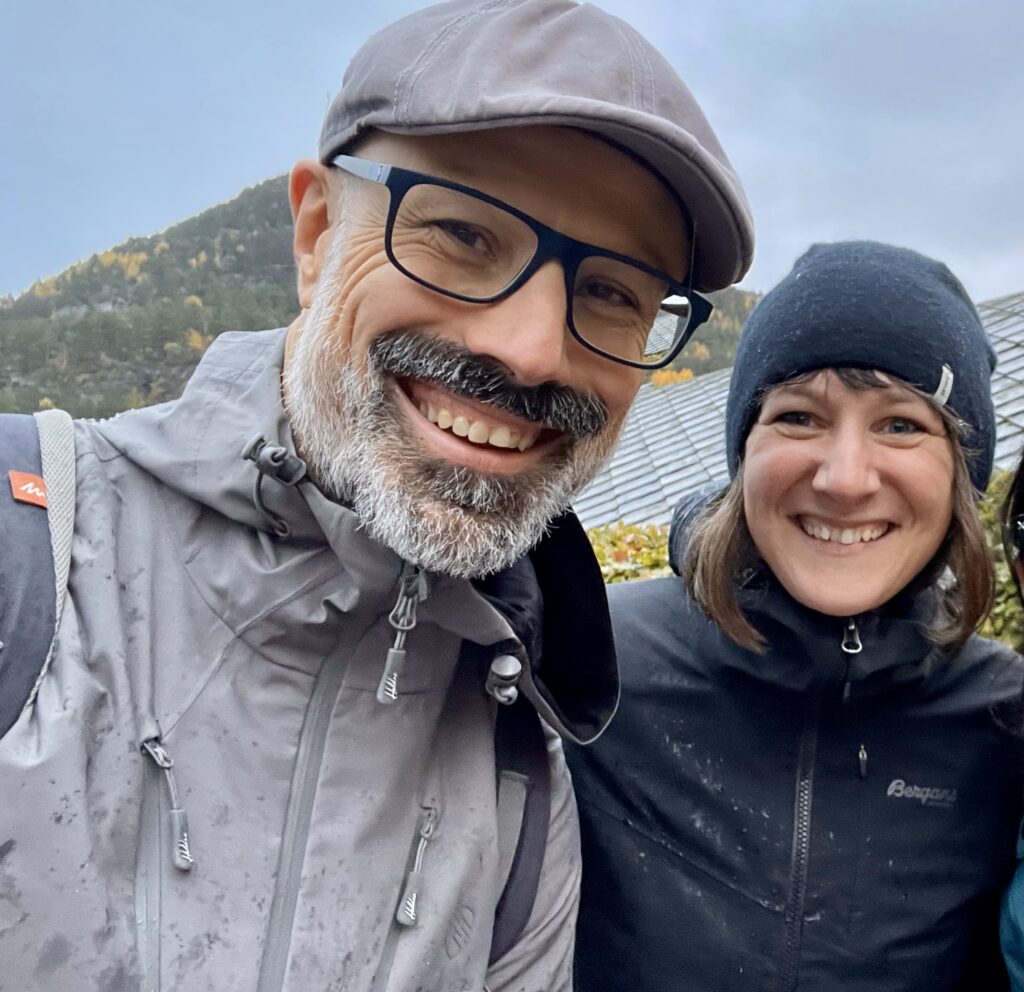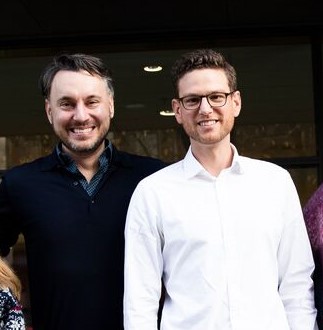The fragility of responsibility: AFINO’s swansong is an act of hope
“…and my master taught me
how difficult it is to find the sunrise
inside the dusk”(Franco Battiato, Prospettiva Nevsky)
Why a book from AFINO?
So, the AFINO crew has written a book that is coming out in December.
Why should I read it? You may ask. Perhaps a good way to answer this question is to explain why we wrote it. It was not a deliverable we had promised, nor was AFINO a research project, and the book was not an idea that we immediately endorsed without questions.
So, what did eventually spur us? What did we want to achieve?
In the beginning (of the AFINO book project) was not the word, but fear. In contrast, in the beginning (of the AFINO adventure) was hope. Hope and fear are among the most fundamental and powerful human passions, and they have been at the centre of attention of Western culture since its very beginning. For instance, hope and fear play a key role in Thucydides masterful narrative of the Peloponnesian war that brought down the Athenian imperial democracy. And since then, they have always occupied the thought of western philosophers, political thinkers and moralists (not in the pejorative sense of moralizers, but in the older sense of analysts of human nature).
So, was the AFINO journey a descent from hope to fear? Is the AFINO book the journal of this voyage, or does it provide also constructive contributions for the future?
We had been thinking about the opportunity to write a book together for more than a year and with more than one misgiving. When we finally decided to go for it, when we clearly saw that there was a point in writing a book, it was out of both fear and hope. We were feeling that the prospects of responsible research and innovation (RRI) and corporate social responsibilities (CSR) were not looking bright. The organisations that had most supported RRI seemed to be progressively disengaging from the idea and moving towards new fashions and buzzwords. CSR on the other hand seemed to become increasingly overshadowed by the sustainability agenda and by the Sustainable Development Goals (the famous SDGs).

Our fear was that this declining interest for RRI and CSR would bring with it a regrettable loss: the importance of responsibility and agency was at risk of being disregarded. The waning of responsibility could slump the centrality of human and ethical factors. And here came the hope. The hope that drove us was that we could convey a very important message: the practice of responsibility is difficult, demanding and fragile. Yet, the aspiration to support and empower human moral agency and responsibility is too important to be given up. It is too central to our conception of humanity, to our self-understanding as being with freedom and dignity.
Holding on to responsibility and human agency
As Immanuel Kant memorably and boldly put it: “What has a price is such that something else can also be put in its place as its equivalent; by contrast, that which is elevated above all price, and admits of no equivalent, has a dignity” (Groundworks of the metaphysics of Morals, Allen W. Wood’s translation). And for Kant the dignity of human beings’ springs from their capacity of self-determining themselves, that is to act out of moral duty even against their material interests. This shows the strong relation between dignity, freedom and responsibility. We are responsible beings because we always have the potential to act according to the moral motive.
For us in AFINO the focus on responsibility is fundamental in preserving a humanistic perspective that honours the freedom and dignity of humans. We are not naïve though, and we are aware of how difficult it is to act responsibly in real life circumstances and especially in modern societies that are tightly organized to give people specific tasks and duties and to limit their responsibility. This led Max Weber to forge the powerful image of the “iron cage” to describe the growth of bureaucratic organizations in modern societies and their inexorable curtailing of freedom and agency. So, we were drawn to Martha Nussbaum’s idea of fragility. In her rightly celebrated book The fragility of goodness she recovers the wisdom of Greek tragedy to show how the goods that make human lives worth living are also constantly exposing humans to the vagaries of fate, to the possibility of loss, failure and grievance and yet, fragile as they are, the goods are worth pursuing.

The Fragility of Responsibility
Similarly, the underlying idea animating our book is that responsibility is fragile, yet we need to stick to it and try to nurture it, to keep looking for ways, spaces and mechanisms for encouraging, enabling and supporting responsible actions and cultures. Therefore, the various chapters explore a broad range of challenges, fragilities and shortcomings. Nevertheless, the aim is to help us to address them.
The first part of the book (The emergence of responsibility) discusses the rise to prominence of the concept of responsibility in research, innovation and business. Emerged as a response to a legitimacy crisis faced by science and businesses, and from the need to show more consideration for social demands and concerns, responsibility has been promoted and adopted with a characteristic mixture of sincerity and opportunism, conviction and disbelief, and endorsed by funding agencies with what Robert Nozick called non-binding commitments. The first three chapters show how the status of responsibility remains contested, ambivalent and insecure both at policy level and within science and business cultures. Furthermore, they show how difficult it is to really capture and evaluate the real impact of the responsibility discourse and efforts.
The second section of the book (Contexts of fragility) explores some of the contextual challenges that social responsibility meets in the actual research and business environment. Whether it is in academic research or in global business, incentives, constraints and rewards often pose such challenges to high standards of responsible practice as to make its sustainability questionable and burdensome. Intentions hit structural and systemic challenges, as well as conflicting vested interests that endanger the practice of responsibility and force us to rethink what is realistic and what is fair to expect in real life circumstances. Questions that move the discussion from the responsibility of research and business agents to the responsibility of the agencies and policies that articulate the actual requirements, expectations and assign incentives.
The third part of the book (Practices: fragile or robust?) looks at some main mechanisms to translate ethical and social demands into practice: broadening the involvement of social actors in the processes of research and innovation, and passing legislation meant to support responsible practices. The four chapters illustrate how rocky is the road from intentions to achievements, and how many ambiguities, unknowns and unforeseen paths unfold in the implementation process. Ongoing learning and adaptation are necessary to pursue the goals, but the knowledge and commitment to improve and revise strategies are not always within easy reach.
To stress our intention to be not only ruthlessly honest but also constructive, the book ends with some reflections on the current prospects for socially responsible science in Norway, highlighting both the elements of hope and the numerous obstacles and weaknesses. The conclusion is a strong advocacy for an enduring and better targeted support for transdisiciplinarity and deep involvement with communities and civil society. Finally, some recommendation for the policy makers and funders are also provided.
(Scroll down for the table of content.)
Hope and truthfulness
So, the book came out of a need for truthfulness and a desire not to give up. Our fear that responsibility may be on the wane elicited a commitment to advocate its importance in the face of multiple and serious challenges. We were looking for an act of hope—not of wishful thinking—but an act of hope anchored in truthfulness and realism. So, we offer a serious and detailed analysis of the challenges and obstacles to responsible behaviour and practices, to ground hope not in rhetoric, but in perseverance and resolve.
To borrow the words from Seamus Heaney, the book was born out of “the need on the one hand for a truth telling that will be hard and retributive, and on the other hand, the need not to harden the mind to a point where it denies its own yearning for sweetness and trust” (Seamus Heaney, Nobel Prize Award ceremony speech). The Irish poet concludes his speech with a loving celebration of the power of poetry: “the power to persuade that vulnerable part of our consciousness of its rightness in spite of the evidence of wrongness all around it, the power to remind us that we are hunters and gatherers of values, that our very solitudes and distresses are creditable, in so far as they, too, are an earnest of our veritable human being”. If our book could have an ounce of that power and further the reader’s resolve and resourcefulness in pursuing research and business that do not abdicate their social responsibility, we would be very happy indeed and we would have done a good service to the readers and society.
| Table of contents |
|---|
| Foreword (Per Koch) |
| Introduction (Giovanni De Grandis & Anne Blanchard) |
| Part I – The emergence of Responsibility |
| Ch. 1 – The institutionalization of social responsibility in Norwegian business and research: moral progress, moral decay, or both? (Siri Granum Carson) |
| Ch. 2 – From value-freedom to responsible research and innovation? – Post-normal and transdisciplinary pathways. (Matthias Kaiser) |
| Ch. 3 – Norwegian engagement with RRI and the propagation of RRI by the Research Council of Norway (Christian Wittrock, Gustaf Nelhans, Anne Ingeborg Myhr, and Svein Ole Borgen) |
| Part II – Contexts of fragility [of responsibility] |
| Ch. 4 – The elusive transformation of research and innovation. The overlooked complexities of value alignment and joint responsibility (Giovanni De Grandis) |
| Ch. 5 – Navigating tensions around RRI in higher education (Anne Blanchard & Erik Bjørnerud) |
| Ch. 6 – Companies squeezed between autocratic and democratic regimes (Atle Midttun) |
| Part III – Practices: fragile or robust? |
| Ch. 7 – Including societal actors in R&D – Different expectations, different responsibilities (Harald Throne-Holst) |
| Ch. 8 – Do you value responsible innovation? (Elin Merethe Oftedal, Matthias Kaiser, and Tatiana Iakovleva) |
| Ch. 9 – Has Law and Social Science trivialized the concept and practice of whistleblowing in Norway 2007-2023 (Kristian Alm and Heidi Karlsen) |
| Ch. 10 – Acting on the Norwegian Transparency Act: interpretation and implementation (Caroline Dale Ditlev-Simonsen) |
| Conclusion – A sea change in science and technology ecologies? Prospects of socially responsible research and innovation towards 2030 (Siri Granum Carson and Matthias Kaiser) |
The book “The Fragility of Responsibility, Norway’s Transformative Agenda for Research, Innovation and Business” will be available as Open Access, and can be ordered as eBook and with Hardcover.
The book will be published 2nd of December, 2024. It can be preordered before it is published.
Link to the publisher DeGruyter to order.
It will be a launch of the AFINO book 13th December, at Deichman Bjørviks (Kinosalen), in Oslo. Follow the AFINO website for more information about the launch.

Giovanni De Grandis
Giovanni De Grandis has a PhD in Philosophy. In the last ten years he has worked in several transdisciplinary projects and initiatives in the areas of health, new technologies, innovation and public policy. He is the coordinator of the AFINO project and leads Work Package 2.



